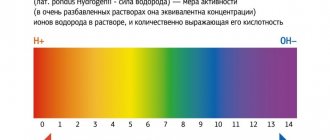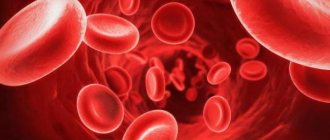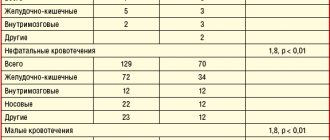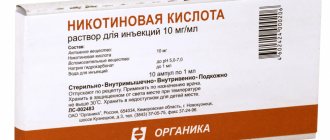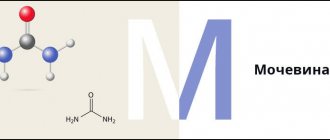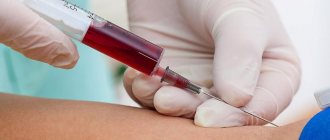Stress is a biological response to difficult situations. This causes the body to release hormones such as cortisol and adrenaline. Stress hormones help prepare the body for action by increasing the heart rate and breathing rate, creating a heightened state of alertness or arousal. This response to certain situations is designed to protect you from threats from predators, whether physical or psychological.
But how can you lower your cortisol levels if you have chronic stress? Obviously, reduce the number of stressful situations, and for faster and more effective recovery, contact us at Altimed MC.
What is cortisol?
Cortisol is the primary stress hormone that is released by the adrenal cortex whenever you experience stress. If you are chronically stressed, your body constantly releases the hormone. Chronically high cortisol is very detrimental to your cognitive and physical health, as well as your well-being. However, in the short term, the release of cortisol is very beneficial and serves as a form of protection for your body.
Chronically elevated cortisol levels are especially dangerous for your brain. In such cases, the hormone damages areas in the hippocampus, the part of the brain responsible for learning and memory.
Elevated cortisol levels have been shown to also lead to sleep problems and noticeably poorer sleep quality. This is because too much cortisol prevents you from falling asleep in the evening, and at night leads to a situation where you are in a constant state of alertness.
Panic attacks and willpower
There are a number of common points in the treatment of panic attacks and neuroses - their therapy involves searching for the internal cause of the attacks. Usually these reasons are psychological trauma and severe stress. However, if a person with a strong will was able to suppress them and displace the strongest experiences into the subconscious, then deeply hidden emotions will make themselves felt. Since a person has not allowed himself to fully experience a strong emotion - joy, grief, excitement, etc., this feeling will find a way out for the realization of nervous excitement. As a result, a panic attack may develop. But having found out the true cause of the disease, the psychotherapist can, using the patient’s volitional qualities, eliminate the source of the panic state. Therefore, treating panic attacks through psychotherapy is quite successful and effective, as it combats the underlying cause of the disease.
Effect of cortisol on the body
to overestimate the functions of cortisol ; it takes an active effect in metabolic processes in the body. The hormone enhances the effects of adrenaline and norepinephrine, which allows a person to independently cope with a stressful situation without medication.
Cortisol had an anti-inflammatory effect and regulates the production of amino acids and their uptake by skeletal muscle tissue. The stress hormone is responsible for the process:
- protein management (it enhances catabolism and is involved in the process of protein breakdown);
- carbohydrate metabolism in the body;
- fat metabolism;
- water-electrolyte metabolism.
In addition to these properties, the effect of cortisol on the body is observed in other processes. So, its normal level is:
- pronounced anti-inflammatory effect;
- strengthening the body's protective functions;
- increased blood pressure;
- increased secretion of stomach acid;
- release of calcium from bone tissue.
Cortisol reduces the body's resistance. It is very important for the body and in case of severe deficiency, immediate elimination of the imbalance is required.
How to trigger an adrenaline rush?
The production of adrenaline is associated with a person’s emotional state. Its release can be provoked artificially. For this it is enough:
- watch a scary movie;
- jump with a parachute;
- play dangerous games;
- see something scary, etc.
For some people, it is enough to “wind up” themselves in order for the hormone to begin its independent production. It is impossible to regulate it with products. These are exclusively emotions and the work of the nervous system.
A mind full of anxiety and various obsessive thoughts can trigger the production of the hormone. This is especially true at night, when there is silence in the apartment and various thoughts creep into your head. The receptive brain is able to draw various pictures, which is accompanied not only by fear, but also by an active loss of energy.
To control the stress hormone, it is enough to organize your thoughts. Minimize TV viewing, remove sources of bright light before bed, remove mobile phones and music.
What is adrenaline?
Adrenaline is a substance that is produced in the adrenal medulla, as well as in some neurons of the central nervous system. Within a few minutes during a stressful situation, adrenaline is quickly released into the blood, sending impulses to the organs to create a specific reaction.
Adrenaline is usually released when we are in a stressful situation; it is said to govern our fight-or-flight conditions. When we encounter a situation that causes us stress, this hormone rushes to certain parts of our body, causing us to react, this is called the release of adrenaline. For example, a dry throat during public speaking or a rapid heartbeat in a frightening situation are all due to the release of the hormone adrenaline. As stress gradually subsides, its effects are neutralized by norepinephrine, a body hormone.
Treatment
Treatment of panic attacks is currently very successful and effective. When treating phobias and panic attacks, treatment is initially aimed at the root cause of the state of panic - the release of adrenaline, and therefore adrenergic blockers are used. However, before therapy it is necessary to exclude diseases with similar symptoms, among which sympathoadrenal crisis can be distinguished. In one case, a vegetative crisis may occur due to an adrenal adenoma - this is a benign tumor, due to which excess adrenaline can be released into the blood. In another case, a symptomatic adrenal crisis may occur against the background of neurosis, and disturbances of the autonomic nervous system may also be observed. The crisis is triggered by an incorrect command from the human brain addressed to the adrenal glands, as a result of which they mistakenly release adrenaline. However, a modern psychiatric clinic has a sufficient range of equipment, and thanks to the work of highly qualified specialists, it will not be difficult to confirm or refute this diagnosis. Psychotherapy plays an important role in the treatment of panic attacks, since drug treatment alone cannot eliminate the underlying cause of the disease. Drug therapy will help temporarily eliminate or mitigate the symptoms of the disease, but intensive psychotherapy can find and eradicate the true causes of panic attacks.
What is adrenaline stress
Adrenaline release occurs at the moment of maximum tension. It is noteworthy that this process can be triggered by both ordinary viewing of a horror film and serious stressful situations. An excess of stress hormones negatively affects the general condition of the body and can lead to the development of chronic stress.
Adrenaline stress to a state in which the maximum release of a hormone occurs under the influence of any situation. At this moment, a person’s strength doubles, and he is able to solve a problem of any complexity. But if adrenaline during stress is the norm, then its excess in a calm state is a real danger to the body. A person may develop the following pathologies:
- high blood pressure;
- severe headaches;
- nausea;
- sleep problems.
In its classic form, the stress hormone adrenaline enhances the body's protective functions. But an abnormal excess can cause diseases of the cardiovascular system. Increased levels of adrenaline lead to the accumulation of fat and sugar in the blood, which leads to excessive weight gain.
In some cases, a person develops adrenaline addiction, and as it develops, the following occurs:
- increased heart rate;
- rapid breathing;
- dilated pupils;
- increase in pressure.
Regularly experiencing adrenaline stress is dangerous to your health!
Overall, cortisol and adrenaline perform many important tasks in the body. For example, in stressful situations they prepare you to be at the top of your game. Hormones also help the brain use glucose as an energy source. In short, cortisol improves your performance. When you need to perform well in a difficult situation, the stress hormones norepinephrine and adrenaline are first quickly released. This is followed by a release of cortisol. The combination of these hormones increases heart rate, blood pressure, and has many other effects. Essentially, cortisol activates you in challenging situations. Read on to learn how to lower cortisol.
Important!
During bleeding, adrenaline acts on the blood coagulation system, releasing a large number of platelets, which are involved in the formation of a blood clot and stop bleeding.
Adrenaline is involved in the body's fight against foreign agents - allergens, preventing allergic reactions and their consequences. Therefore, doctors in these cases use adrenaline solution in their practice.
Adrenaline has anti-inflammatory properties. When an inflammatory focus appears, adrenaline stimulates the immune system, which produces a large number of leukocytes.
When should you contact Altimed MC?
It is necessary to seek qualified help when characteristic symptoms appear. The main signs of elevated cortisol :
- Rapid weight gain, mainly on the face, chest and abdomen.
- Flushed and round face.
- High blood pressure.
- Osteoporosis.
- Skin changes (such as bruising and purple stretch marks).
- Muscle weakness.
- Anxiety, depression or irritability.
- Increased thirst and frequent urination.
You may also experience increased body hair growth or trouble sleeping (as cortisol affects the body's sleep-wake cycle). Elevated stress hormones in women can include decreased sex drive and menstrual irregularities.
If you have elevated cortisol symptoms , which are described above, contact us at the Altimed Medical Center.
Ways to reduce adrenaline levels
Adrenaline increased by stress can be naturally reduced by following a certain lifestyle, diet and taking certain substances. However, if you have been diagnosed with a high adrenaline result, these steps may not be appropriate. Talk to your doctor before making changes to your life, and never use such actions in place of what your doctor recommends.
Reducing psychological stress
It is normal for your body to experience surges of adrenaline throughout the day, depending on your mental or physical activity. However, prolonged increases in adrenaline can have harmful health effects. The most common culprit of chronically high adrenaline levels is psychological stress. ()
Finding ways to relieve stress can help keep adrenaline, along with other stress hormones such as cortisol, under control. ()
Relaxation exercises can reduce stress and prevent the release of hormones. Proven techniques for stress relief include: meditation , autogenic training , yoga , spending time in nature and listening to pleasant music . (, , , , )
Even a simple break from work can help. A study of 55 people found that adrenaline levels decreased in patients with Alzheimer's disease after a 2-week vacation . ()
To give up smoking
Smoking cigarettes can cause a significant increase in adrenaline in the urine. Quitting this habit can be a good way to improve your adrenaline levels. ()
A small study of 17 cigarette smokers found that adrenaline levels dropped after just one day of quitting. ()
Reducing coffee consumption
As mentioned earlier, the amount of adrenaline can spike after drinking coffee. If you're concerned about increased adrenaline, you may want to cut back on caffeine from any beverages. (, )
Taurine
Taurine is a sulfur-containing amino acid formed in the body from cysteine. It is a common ingredient in energy drinks and helps reduce adrenaline.
In a small study of 19 people, taking 6 grams of taurine daily significantly reduced adrenaline levels. But it is best to avoid energy drinks and choose a quality product with taurine. (, )
Other options for reducing adrenaline
No clinical data support the following approaches to reduce epinephrine levels. A summary of existing animal and cell research is provided to guide future research. Therefore, the scientific findings listed below should not be interpreted as confirming any health benefits.
- EGCG is catechin, an antioxidant compound found in green tea that has many health benefits. One study found that in animals, EGCG counteracts the increase in adrenaline levels caused by caffeine. ()
- Dry olive leaf extract protected against epinephrine-induced cell DNA damage in one cell-based study.
- In a study on rats, tomato extract prevented heart damage associated with high adrenaline. (, )
Diagnostics and treatment of stress hormones at Altimed MC
To find out what caused the increase in hormones, it is necessary to undergo a complete diagnosis of the body. This can be done quickly and painlessly here at Altimed MC. We use our own equipment for a complete diagnosis of the body.
Functional screening helps measure stress-related cortisol levels , as well as vitamin and mineral levels. With its help, you can get a complete picture of the functioning of the entire organism.
ATM Vega Test reveals hidden diseases, helps determine their severity and understand what caused them. Based on the results obtained, our specialists can create an effective treatment plan, the results of which you will notice in the first days.
Outpatient and inpatient treatment
The Mental Health Clinic successfully combines the treatment of panic attacks both with medication and through psychotherapy. Most often, treatment for panic attacks is carried out on an outpatient basis, but there are also options for inpatient placement. The attending physician will select an antidepressant that will help relieve acute symptoms and draw up a treatment plan, including the prevention and relief of possible recurrences of panic attacks. Patients who clearly know how to help themselves when the disease manifests itself experience significantly less fear of the manifestation of a crisis, which reduces general anxiety and raises the emotional background in general. However, the most important psychiatric help for panic attacks is to conduct active psychotherapeutic work with the patient. This will allow you to find the root cause of the disease and, by completely eliminating it, get rid of the disease forever.
We can help you! Call us
How are stress hormones treated at Altimed MC?
The process of reducing cortisol takes time and a comprehensive approach. Our specialists will prepare a course for you, after which you will be able to restore the normal level of cortisol in the body and thereby get rid of many discomforts (excess weight, sleep problems, and others).
To reduce stress, we recommend taking a course of treatment using our ATM TR device for transcranial magnetic stimulation. Frequency-wave processes affect the body, establish synchronization of all organs so that they work in their own rhythm. A device for electromagnetic (PEMF) therapy at home ATM Helper ML helps restore the level of stress hormones in the human body. The main thing is that you can use it in the future if you find yourself in stressful situations. Also, it has a wide range of actions and is no less effective in curing many other diseases. You will be told about this in more detail during your consultation.
The use of adrenaline in modern medicine
In modern medicine, adrenaline is used as a medicine. It is produced in ampoules of 1 ml/1 mg. This is a fairly serious drug. Very often it is used in emergency conditions.
Main indications for use:
- heart failure;
- myocardial infarction;
- attack of bronchial asthma;
- respiratory arrest;
- acute bleeding;
- acute inflammatory reactions.
Main contraindications:
- atrial fibrillation;
- myocardial hypertrophy;
- thrombosis;
- oncological pathology;
- intestinal atony;
- bronchodilation.
Contraindications to taking adrenaline
Adrenaline is a life-saving drug, so there are no absolute contraindications to its use. In case of life-threatening conditions provoked by anaphylactic shock or other symptoms listed in the indications, you should immediately give the drug and then call an ambulance.
In other cases, if possible, relative risk factors should be excluded before administering epinephrine, which include:
- hyperthyroidism;
- arterial hypertension;
- pulmonary embolism;
- cardiovascular diseases;
- renal failure;
- pregnancy;
- cardiac ischemia.
Dosage and routes of administration
Epinephrine can be purchased at pharmacies as a clear solution in a pre-filled syringe. This form allows for quick, intuitive and independent administration of the drug to children and adults.
The drug with adrenaline should be injected only into the muscle located in the anterolateral part of the thigh. The injection site is then massaged to disperse the drug more quickly throughout the body.
The volume of drug administration is calculated based on the patient’s body weight. It is suggested that both children and adults weighing more than 30 kg should receive a single dose of 0.3 ml of epinephrine. Each prefilled syringe is a single-use product containing 1 ml of drug.
Although the amount of the drug recommended for a single administration, i.e. 0.3 ml, less than in a syringe, the medicine cannot be reused. If symptoms do not improve or worsen, a second, same dose may be given from the next syringe.
Children weighing less than 30 kg also need to take a dose of 0.3 ml of adrenaline, since the design of the syringe does not allow the administration of a different amount of the drug.
The advantage of a prefilled syringe is that it has a built-in lock, preventing you from injecting a larger dose of the drug than recommended. This is a huge advantage, because the condition of the patient who has to inject himself with adrenaline often interferes with clear thinking and precise movements.
The drug should be used immediately after the onset of symptoms of shock: redness of the skin, angioedema, breathing problems, cardiovascular problems and urticaria. After taking adrenaline, you should always call an ambulance.
Other routes of administration of adrenaline (inhalation or sublingual form) and doses of the drug can only be used by physicians.
Indications for use
Adrenaline is used in many areas of medicine:
Allergology – during the occurrence of acute allergic reactions during anaphylactic shock caused by the body’s reaction to allergens, and anaphylactoid situations that can occur suddenly, due to the body’s reaction to factors that did not previously cause sensitization;
Ophthalmology – for the treatment of open-angle glaucoma;
Cardiology – in the treatment of cardiogenic shock;
ENT and dentistry - decongestants of the mucous membrane. Used after bleeding procedures - removal of teeth, tonsils;
Anesthesiology - because in combination with local anesthetics it prolongs the analgesic effect.
Norm of adrenaline in women and men
Adrenaline levels can be measured in two ways: in the blood or daily excretion in urine.
To determine the concentration of adrenaline, there are certain preparation rules:
- 2-3 days before the test, avoid consuming the following foods: coffee, tea, bananas, citrus fruits, avocados, tomatoes, chocolate, cocoa, vanilla, sweet carbonated water, alcohol. All of them contain amines - substances that are similar in structure to adrenaline, and therefore can affect the reliability of the result.
- If you regularly take medications that affect the concentration of this hormone in the blood, you should stop taking them 2-14 days before the test. These substances include tetracycline antibiotics, reserpine, tranquilizers, monoamine oxidase inhibitors, adrenergic blockers, and sympathomimetics. Be sure to consult with your physician.
- The test should be taken on an empty stomach, with the last meal at least 8 hours before the test. You can drink still water without additives.
- Eliminate stress, physical and emotional stress the day before the test.
These rules apply to determine adrenaline in blood and urine.
Normal blood levels in women and men over 16 years of age are 0-140 pg/ml.
If the level of adrenaline in the blood is elevated, it is worth determining its daily excretion in the urine. The level in the blood is very unstable; normally, it is secreted by the adrenal glands for a short time during stress, physical exertion, or emotional shock. Since it is not possible to take blood samples throughout the day and calculate the average value of adrenaline in the blood per day, there is another way - urine collection. All urine excreted by the patient over the last 24 hours is used for the study.
The average secretion of adrenaline in urine in men and women over 16 years of age is 0-20 mcg/day.
The normal values of adrenaline in blood and urine may differ depending on the laboratory and the reagents used.
